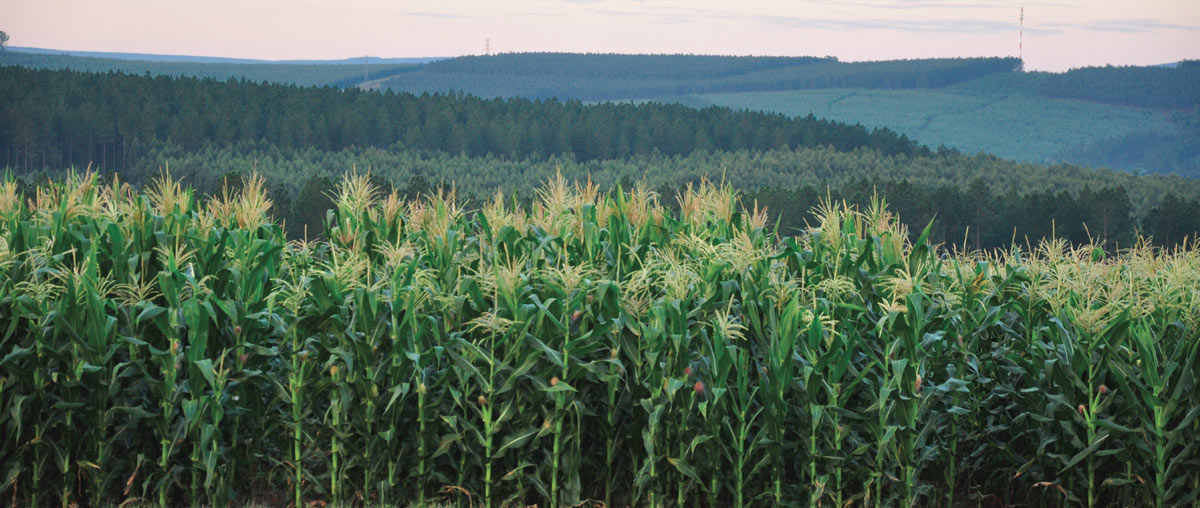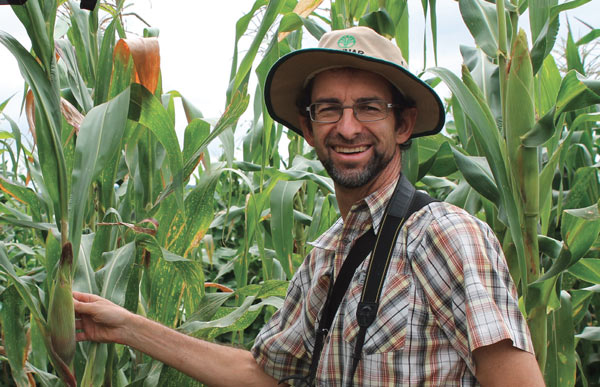Professor Dave Berger of the Department of Plant and Soil Sciences has led a local consortium made up of PANNAR SEED Pty (Ltd), the University of KwaZulu-Natal, the Centre for Proteomics and Genomics Research (CPGR) at the University of Cape Town, and Forestry and Agricultural Biotechnology (FABI) research groups on the ‘Genomics of quantitative disease resistance in African maize varieties’, funded by the Technology Innovation Agency and the Genomics Research Institute at UP. Novel sources of quantitative resistance to Grey Leaf Spot (GLS) disease of maize have been identified, and a patent is currently under examination in several countries.
The power of microarray technology was harnessed to generate 4 million datapoints from a single maize population. In collaboration with Professor Zander Myburg of the Department of Genetics, groups of co-expressed genes involved in maize resistance mechanisms, and the strategies that the fungus employs to overcome susceptible maize varieties, were identified.
Professor Berger’s research also focuses on the impact and diversity of maize foliar diseases. As leader of the Molecular Plant-Pathogen Interactions group in FABI, this work is conducted in collaboration with fellow researchers Dr Irene Barnes, Dr Bridget Crampton and Professor Terry Aveling. The team recently completed a population genetics study of Cercospora zeina, the fungus that causes GLS, in three provinces of South Africa. Analysis of 350 isolates from commercial farms revealed that the pathogen shows remarkable diversity. In addition, both mating-type genes were found from isolates in all fields, indicating the potential for sexual recombination.
These results challenge a long-held hypothesis that the fungal disease results from a single entry point of the pathogen, and alert maize breeders to the need for diversified resistance breeding. Through a Department of Agriculture, Forestry and Fisheries (DAFF) grant, the team is expanding its research to small-holder maize farms in KwaZulu-Natal and the Eastern Cape, where improved maize hybrids are being tested in farmers’ fields. GLS is also widespread in East Africa so a PhD student from Uganda is applying the molecular markers developed in South Africa to the problem in that country.

